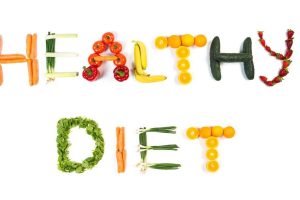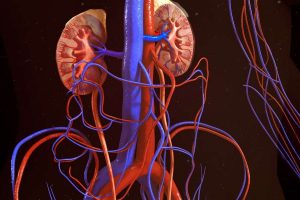Near the middle of the back, right below the rib cage is located our fist-sized bean-shaped organs the kidneys. Now how many of you knew that?
The kidneys have an important part they play such as to filter impurities and waste products from the bloodstream. When the kidneys remove this waste, it passes on to the bladder through our tubes called ureter, and this is where it’s excreted as urine.
Proper kidney function can boil down to just one idea: Intake cannot exceed the kidneys current filtering ability. If you eat too much of what your body does not need, your kidney may not get rid of the waste accurately.
Kidneys purify out excess waste from our bodies and therefore play an important role to our overall well-being. Nephrons, which are the little functional units that fill each kidney, regulate the water and chemicals in the blood.
Roughly two quarts of waste are removed from the over two hundred quarts of blood pushed through your kidneys by the heart.
To uphold proper kidney health, a balance of items must be properly upheld. These items: protein, sodium potassium, phosphorus, and fluid intake should be followed in order curb kidney problems.
Without enough protein, your body will weaken. Tissues will decline, and you become susceptible to sickness. Too much protein and your blood fill with a waste called blood urea nitrogen. This is not okay. A highly increased BUN level could point to a moderate to the critical mark of kidney failure.
Try to dilute your protein intake by splitting equally between animal and vegetable protein sources. This will help you get enough protein and should better keep you from overloading your kidneys.
Everyone needs a certain amount of sodium, but some people retain too much. Sodium causes you to hold fluid, and for some people, it can contribute to higher blood pressure.
Limit your sodium intake by curbing your fondness for foods containing added MSG, sodium preservatives, canned goods, and any items with added salt. If you use salt, use a product like Real Salt, which contains trace minerals and no fillers. It is better for you.
You need potassium to keep your nerves and muscles working correctly. A condition of excess potassium can be occurring when the proper volume of kidney urine decreases. This is caused when your kidney is not functioning properly. Too much potassium can cause irregular heartbeat and hinder the heart to pump blood right.
You do not want this to happen. Keep your potassium within the normal limits. If you have too much potassium, watch your intake of nuts, nut butter, meats, bananas, potatoes, beans, salt, and chocolate.
The balance of calcium and phosphorus also help nerves and muscles to perform correctly. It is important to keep phosphorus levels right because if they are too low, your body robs your bones of calcium. It does this to maintain the balance of phosphorus to calcium constant.
It has been said that this balance directly relates to producing natural kidney stones. To keep phosphorus at good levels be careful with your intake of dairy products, chicken, fish, and meat. It is often said you should especially avoid cheese if you have problems with natural calcium-based kidney stones.
In most cases, you should be running a lot of fluid through your kidneys. That is unless your kidneys cannot handle excess fluid because they are not working at full capacity. If you have special needs, get a doctor’s precise advice on the proper fluid amount. In normal conditions, about six glasses of water a day should do the trick.
The kidneys play a big part in our bodies so take care of them and know their function and what could go wrong is important. Most people that go through having kidney diseases wouldn’t want to go through the pain again something that could help you is trying Renalis, it addresses diet-related kidney stone formation.
As diet is an essential element to general kidney function, the nutrients found in this product help healthy kidney purpose and may inhibit the disease. Check out the “No Dialysis Needed” program is a step-by-step treatment program which helps improve your kidneys naturally, without the use of unnatural man-made pharmaceutical drugs.
In closing, speak to your doctor. Get to know what your blood levels of sodium, potassium, phosphorus, and protein can be. Have your doctor explain each item to you when you get the results from the kidney blood tests.
If you have elevated or decreased levels, take the proper dietary steps to fix the problem areas. This will help keep your kidney function nearer to 100%.










